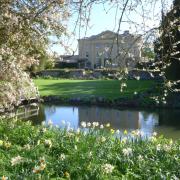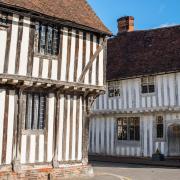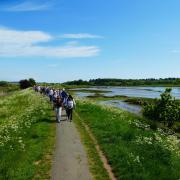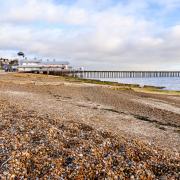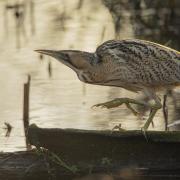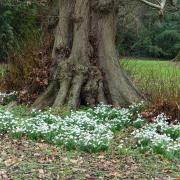Lucy Etherington prepares to tickle the ivories at this year’s Aldeburgh Festival

I am playing the piano at Aldeburgh Festival this month, even though I haven’t played for 35 years. I only started learning again this spring. Along with another (last count) 200 piano novices, I have signed up for the Grade 1 Challenge, an initiative run by Aldeburgh Music and the Britten-Pears foundation to encourage new learners to develop a passion for the instrument.
Besides various online tutorials and a chance to practise at one of the rehearsal rooms at Snape, part of the challenge is to perform at the Grade 1 Extravaganza concert on June 26, the last day of the 2016 Aldeburgh Festival.Back in April when I signed up, that seemed like a bit of a lark. To play at an internationally renowned venue that has attracted some of the best musicians in the world. What an incredible opportunity. Now every time I look at the picture of that Steinway Grand at the base of a sweep of seats in the Snape Maltings Concert Hall, my throat goes dry and I start thinking of ways to avoid turning up.
“Just enjoy it,” Aldeburgh Music chief exec Roger Wright tells me. “It’s supposed to be fun. And remember you will have the most supportive audience, full of friends and family members and people who wish you well. Everyone will be cheering you on.” The fact that he will also be in the audience – a man who ran the BBC Proms for several years – doesn’t alleviate my anxiety. But Roger reminds me that Snape isn’t remotely snobbish. The whole Britten ethos is to get everyone to appreciate music, as Aldeburgh Music’s vast amounts of community workshops, young orchestras and educational projects testify.
“We’re aware that everyone is at different stages and ages,” he says. “That’s what’s so wonderful about it. There are adults who have always wanted to play but never had the opportunity, and children who are starting out. I think it’s thrilling. This is just the start of your journey don’t forget: you’ll never think you’re good enough. Professional musicians get nervous too.”

He’s right. It has been quite an amazing journey so far. A large part of that has been thanks to my teacher, Rebecca Clark, recommended by a friend whose child is one of her pupils. Rebecca’s daughter is with the Aldeburgh Young Musicians and aged 11 is Grade 8 flute. Rebecca herself is a flautist, but recently learned piano from scratch, making her way up to Grade 8, mostly so she could accompany her prodigiously talented offspring.
Before I embarked on the Grade 1 Challenge, I assumed it would be easy. I had played the piano before, albeit over three decades ago, as a child. Indeed, one of the things I told my husband when we were dating was that I was a bit of a piano protégé. So on my 40th birthday he bought me – “surprise” - a piano, then sat back and waited for his wife to transform into Helen Grimaud (hot and talented French classical pianist), but instead found himself listening to Les Dawson. For both of us it was a bit of a rude awakening. I didn’t really touch the piano after that, and now it’s in the garage.
To play for my teacher for the first time was quite awkward. My fingers were all over the shop, and I was mortified by my own mistakes. What probably helped me get over my self-consciousness was practising at friends’ houses (my own piano being wedged in said garage), and having their children, who had all taken Grade 1, listen to my clunky efforts. I played really quietly at first, cringing at every wrong note. But the kids were surprisingly understanding and supportive, keen to advise the inept grown-up.
After lesson three, as I was practising it suddenly came together. I played the entire tune without tripping over my own thumbs and it sounded OK! I had actually improved! It was the same feeling as when you plant a seed and the first shoots appear. Even though growth is something happens all the time, it seems miraculous. I began to think: I can do this.
Now as the deadline approaches, I need to make sure I practise daily if I’m going to be half as good as Evie. She’s only nine, but is playing the same tune I’ve chosen and sounds like she’s already nailed it.
A fellow ‘mature’ Grade 1 Challenger, Helen, who I met through our mutual teacher, is going to lend me her keyboard so I can do more at home, and we’re planning to go to Snape together to practise in one of their rehearsal rooms. It’s great having a Grade 1 buddy, especially one who is over 10 years old. Having read Guardian editor Alan Rusbridger’s marvellous book, Play It Again, about re-learning the piano in mid-life, I think we might be part of a trend.
Good luck to my fellow Grade 1 Challengers: see you on the 26th!






